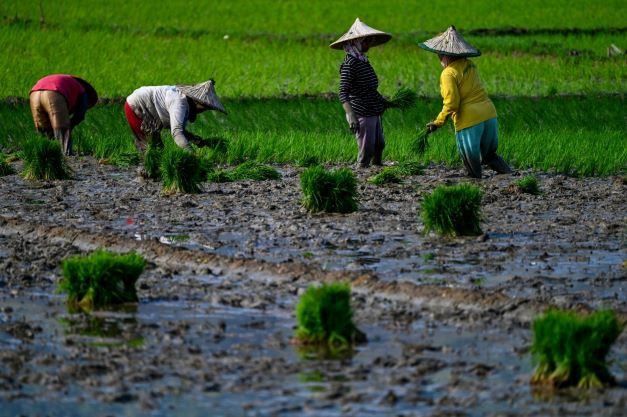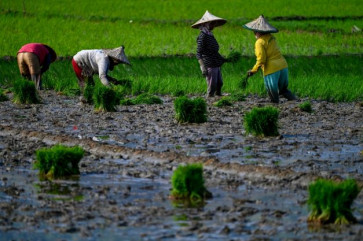Popular Reads
Top Results
Can't find what you're looking for?
View all search resultsPopular Reads
Top Results
Can't find what you're looking for?
View all search resultsIs our agriculture sustainable?
The 2021 AGRIS conducted by BPS provides data showing that we need a paradigm shift in the agriculture sector to adopt a holistic approach toward sustainability that incorporates the economic, social and environmental dimensions.
Change text size
Gift Premium Articles
to Anyone
A
lthough sustainability has been part of the public discourse on the future of our agriculture, a convincing conclusion based on a multidimensional assessment about the state of our agriculture is not yet available. This has made for inadequate analysis and poor monitoring on the policies and progress of sustainable agricultural development over time.
Thanks to the Agricultural Integrated Survey (AGRIS) conducted in 2021 by Statistics Indonesia (BPS), a multidimensional assessment covering the economic, social and environmental dimensions of sustainability has become possible for the first time in Indonesia, at both the national and provincial levels.
The survey collected nationwide data from around 300,000 agricultural households and 2,000 non-household agricultural entities, including businesses.
Unfortunately, the survey results released last December painted a worrying picture about the future of our agriculture sector. It confirms the bias in our agricultural development strategy that focuses heavily on food production and sets aside the importance of sustainability for several decades.
AGRIS adopted the Sustainability Assessment of Food and Agriculture Systems (SAFA), an assessment framework developed by the Food and Agriculture Organization. SAFA measures sustainability according to indicator 2.4.1 of the Sustainable Development Goals, which indicates the percentage of agricultural land managed under productive and sustainable agricultural practices.
The assessment covers 11 indicators that represent all dimensions of sustainability, namely land productivity, profitability, resilience, soil health, water use, fertilizer pollution risk, pesticide risk, biodiversity, decent employment, food security and land tenure. Each indicator independently assesses sustainability, as each carries the same relative importance.
The results show that around 90 percent of agricultural land in Indonesia is economically unsustainable due to relatively low productivity, measured as farm output value per hectare. This also applies to all leading provincial food producing hubs, such as South Sumatra (94 percent), West Java (85 percent), Central Java (75 percent), East Java (91 percent), South Kalimantan (98 percent) and South Sulawesi (76 percent).



















